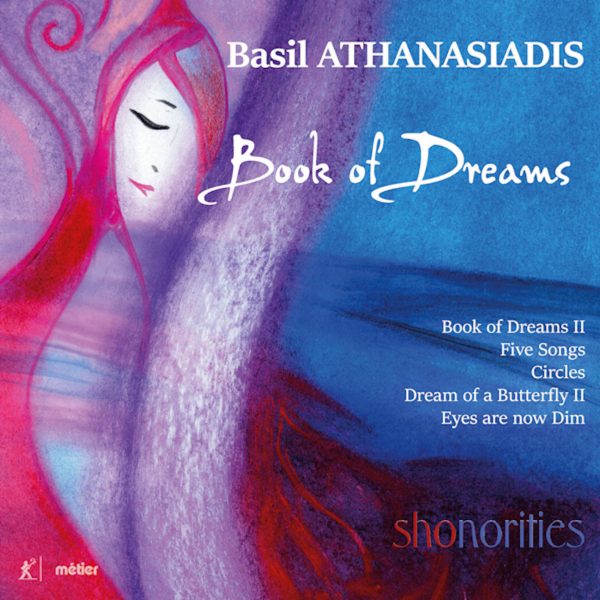Infodad
There is contrast aplenty in the five works by Basil Athanasiadis (born 1970) on a new Métier CD – a disc showing one way in which a strong Greek heritage may be altered by and even subsumed within other cultures. Athanasiadis spent years living and studying in Tokyo, and the pieces on this CD are permeated by Japanese and Chinese aesthetics and sonorities.
They also draw on the sorts of sources favored by many of the more avant-garde contemporary composers: minimalism, ambient music, aleatory, electroacoustics, prepared piano, and of course jazz. Like many contemporary composers who want to explain their techniques and approaches to listeners, Athanasiadis has a good deal to say about how and why each piece on this disc came into being. But audiences will be more interested in how the works sound, and what effects they produce for listeners, than in their provenance. Book of Dreams II, for alto flute and string quartet, is a compilation of melodic fragments taken from Chinese folk music, and it has a pleasant overall character without any sense of progress – it simply is, from start to finish (and at 18 minutes, goes on rather too long, although listeners who enjoy Western minimalism or background music will not find that to be an issue).
Five Pieces for Female Voice and Prepared Piano sets Japanese haiku – sometimes with virtually no piano involvement, sometimes with the instrument overcoming the voice. Circles is improvisational, using solo piano plus electronics created from a recording of Athanasiadis’ voice singing a single tone. Like Book of Dreams II, it is a form of minimalism, here intended to reflect Buddhist chant and quiet places in Tokyo – neither of which, however, is especially apparent from the music itself. Again, this is a work that overstays its welcome, lasting more than 10 minutes without any sense of progress – but here as in Book of Dreams II, it is a piece that fanciers of minimalism will find congenial. The seven-movement Dream of a Butterfly II was created to showcase the capabilities of the electroacoustic Fender Rhodes piano, whose sound is somewhere between that of chimes and that of a marimba. The work focuses on different sounds that this specific now-discontinued instrument is capable of creating. As a demo piece, it is interesting, and the individual elements are short enough to offer a sound sampler that does not profess to any particular meaning. Whether the totality is anything beyond a sound sampler is, however, another matter.
Finally on this CD, Eyes Are Now Dim, at 20 minutes the longest piece here, is another work with a haiku connection, being intended to reflect the wide-ranging concerns embedded within those famously brief poetic structures. Written for female voice, shō, koto, violin, and Chinese gongs, the work has a distinct Oriental tinge but does not seem, strictly from a musical perspective, to offer much more than repetitiveness and some aural experimentation in instrumental combination. That may be enough for listeners who simply find the none-too-familiar instrumental sound attractive – although whether it remains so throughout this extended work is a matter of opinion. Interestingly, given the paucity of Greek elements in the music of Athanasiadis on this disc, Eyes Are Now Dim is the one work connected directly to Greece: it is dedicated to Greek musicologist, composer and music critic George Leotsakos. In concept and sound, however, it is as far from modern Greece as is Homer’s Odyssey.
@divineartrecordingsgroup
A First Inversion Company
Registered Office:
176-178 Pontefract Road, Cudworth, Barnsley S72 8BE
+44 1226 596703
Fort Worth, TX 76110
+1.682.233.4978












